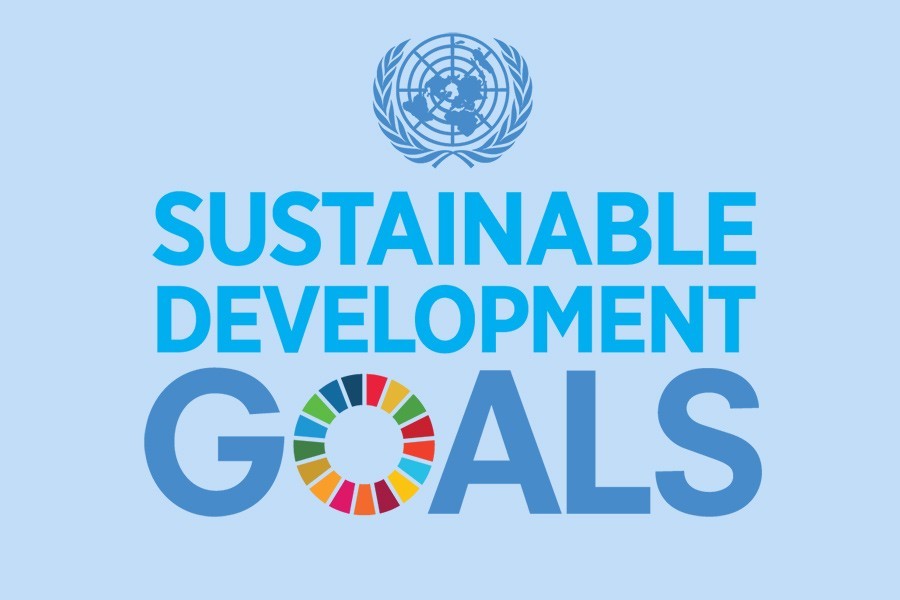The government is set to review the progress in attainment of sustainable development goals (SDGs) next month, officials said.
The progress in the development agenda implementation will come up for review at a three-day national conference scheduled for July 04-06 at the Bangabandhu International Conference Centre (BICC).
The conference is the first of its kind that will review the country's SDGs progress at the national level.
But some major challenges still remain in implementing the 15-year global development agenda, a source concerned said.
The move has been taken to expedite the implementation activities.
Prime Minister Sheikh Hasina is expected to inaugurate the three-day conference, a high official of the planning ministry told the FE.
"We have planned to organise the conference in early July," he added.
Some 43 lead ministries/divisions will take part in the conference. Work plans prepared by the ministries and divisions on the SDGs may be unveiled during the national conference.
Prof Dr Shamsul Alam, Member of the Planning Commission, said the main aim of the conference is to review the ministry-wise attainment of the SDGs.
"We will try to know about the progress made by the ministries concerned so far in achieving the goals."
He, however, said the government's action plan will be unveiled in the conference and required steps will be taken to expedite the progress.
Bangladesh would require around US$ 928.48 billion in additional funding for full attainment of the SDGs.
Of the total, US$ 796.09 billion would come from domestic sources and US$ 132.39 billion from external sources for the whole period (2017-2030), according to the Voluntary National Review, 2017.
The government is committed to implementing the global development agenda.
The country has made a significant progress in preparing plans for implementation of the agenda, according to documents.
The ministries/divisions have prepared detailed work plans against 169 targets under 17 goals on the success of attaining the millennium development goals (MDGs), the documents showed.
In September 2015, global leaders from 193 countries set a 15-year deadline to end poverty, protect the planet and ensure prosperity for all under the new sustainable development agenda.
Different steps have been taken from divisional level to ward level for implementation of the agenda, the documents said.
Besides, necessary steps have been taken to involve people of different classes and occupations in the implementation process.
Bangladesh and other 42 countries, as part of their commitment to implementing the SDG agenda, submitted their Voluntary National Reviews (VNRs) to the United Nations High Level Political Forum (HLPF) on the two-year progress in it.
The goals are interconnected and cover different new areas including sustainable consumption, climate change, economic inequality, innovation, and peace and justice, among other priorities, a source said.
Apart from financing, the VNR report also identified a number of challenges in the areas of infrastructure, noting that proper implementation of the proposed infrastructure strategies will require significant institutional and regulatory reforms.
"A case in point can be urban transport sector reform initiatives," the report said.
"In reforming the urban transport sector, we need to consider many other factors including synchronisation of the initiatives with overall urban management and development strategy," it added.
"Obviously, this is a tough task because of cross-cutting issues and multi-stakeholders' involvement," the report said.
The VNR report said there are multiple challenges in the areas of power generation capacity, transmission, distribution, and diversification of production, particularly moving towards renewable energy sources.
"Similarly, all other infrastructure investment areas have different levels of structural constraints which require to be addressed," it added.
When it comes to implementation of big projects, the challenges primarily come in the forms of land availability, relocation, protecting and maintaining environmental standards and ensuring local level participation, the report noted.
Apart from financing, the prevailing data gap has been a major headache for Bangladesh in chalking out its SDG implementation path which was also pointed out in the VNR report.
The SDGs agenda is adopted for implementation during the period of 15 years from 2016 to 2030.


